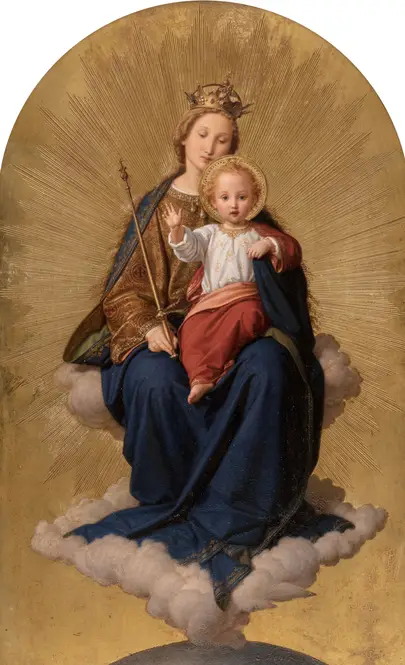Ernst Deger
Ernst Deger (1809–1885), German, A leading figure of the Nazarene movement, this German painter dedicated his career to reviving the spiritual intensity of early Renaissance art. Trained at the Düsseldorf Academy, he later joined a brotherhood of artists in Rome who rejected Neoclassical detachment in favor of medieval-inspired piety. His work is characterized by luminous color, meticulous detail, and an almost devotional reverence for religious subjects—particularly the Virgin Mary, whom he depicted with a serene, otherworldly grace. Though less radical than some contemporaries, his technical precision and emotional restraint resonated with ecclesiastical patrons, earning him commissions for altarpieces across Germany. Critics occasionally dismissed his style as overly sentimental, but the quiet dignity of compositions like *The Assumption of the Virgin* reveals a nuanced balance between idealism and human tenderness. Later in life, he taught at the Berlin Academy, influencing a generation of artists drawn to sacred themes. While overshadowed today by more flamboyant Romantics, his legacy endures in the quiet power of his devotional scenes—a bridge between the old masters and 19th-century spiritual revivalism.
-

Regina Coeli; Virgin and Christ Child enthroned in the clouds
Ernst Deger (German, 1809–1885)A radiant Virgin Mary and Christ Child float among golden clouds, blending divine majesty with intimate tenderness.
